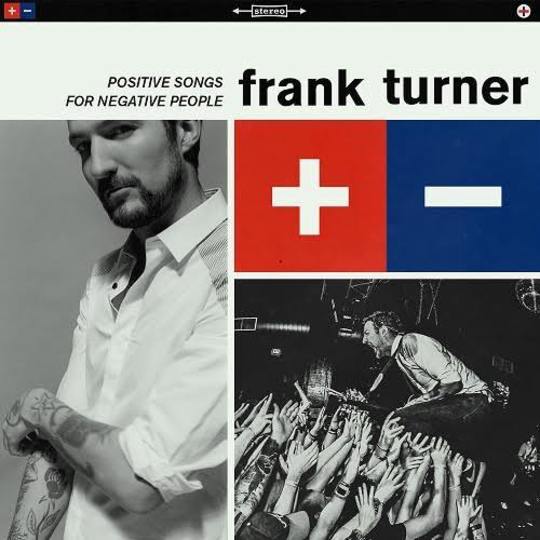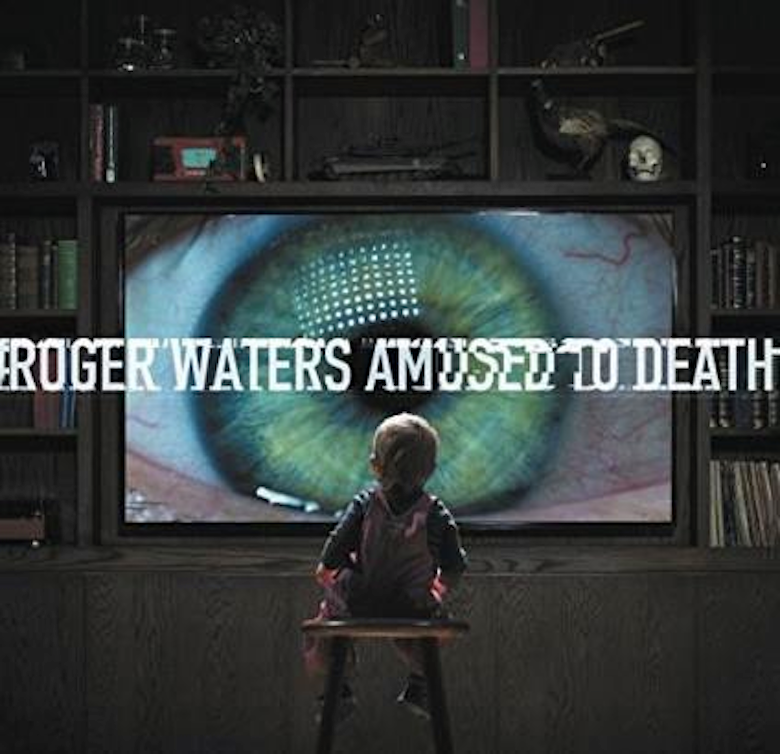It would be easy for this review to consist of little more than a snide character assassination, for it to criticise Frank Turner less for his music than for his continued earnestness in the face of overwhelming – and rather surprising – success. It would be easy to hark back to September 2012 when Turner was, rather embarrassingly (for both media outlet and Turner), outed by The Guardian as a libertarian.
Instead I’d like to begin by emphasising just how much I’ve enjoyed Frank Turner’s music over the years. The day in April 2012 when the guy from Million Dead made playing to an implausibly sold out Wembley Arena look like the simplest thing in the world remains etched in my memory. The sense of community Turner managed to extract from audiences at these shows was quite something, but it didn’t last… at least not for me. Looking back, Wembley 2012 was the obvious point for my Turner fandom to end, but I still maintain that 'It’s not you Frank, it’s me'. My life has changed, and there’s no longer space for a songwriter as direct as Turner.
Not that 'direct' really works as a description of Positive Songs for Negative People. This is Turner’s most staid and uninvolving work to date, suggesting that some of the filler that clogged up 2013’s decent enough Tape Deck Heart was a sign of things to come. Here, opener ‘The Angel Islington’ starts things off with an attempt at rousing localism. On previous album openers we were often lured into feeling at one with Turner. ‘The Real Damage’ made me feel like I was sharing his hangover confusion, ‘I Knew Prufrock Before He Got Famous’ made me feel part of his gang of friends, and ‘Eulogy’ made me feel like I too could turn my hand to filling enormous arenas if I put my mind to it. ‘The Angel Islington’ does none of those things. In fact, if anything it makes me want to put off my impending move to London and go nowhere near Islington ever again.
The opener also sets the tone in terms of the forgettable nature of most of the songs presented here. With the exception of ‘The Next Storm’, which has a few catchy lines bolted on to disappointingly beige instrumentation, every song here is amongst the least memorable that Turner’s ever written. Those that do stick in the brain usually do so more because of lyrical missteps than because of their own pleasing character. There’s the pointed rhyming of “change” and “strange” on ‘The Opening Acts of Spring’, or the clunky pairing of “dress” and “directionless” on ‘Glorious You’. Then there’s the hilarious (in all the worst ways) ‘Love Forty Down’, an extended tennis metaphor that could only be improved by a guest rap verse from Andy Murray, or the saccharine sweetness of ‘Mittens’.
I suspect that the problem with Turner and his music, for his detractors, has always been more to do with how he expresses himself rather than what it is he actually expresses. The controversy over Turner’s libertarianism wasn’t so much the result of what he actually believes but the ham-fisted way he had chosen to express said beliefs in numerous interviews, in which he made his politics seem that of a social media troll as much as anything else. As a historian specialising in the British far right I found Turner’s branding of the BNP as a 'hard left party' particularly worthy of a weary sign. Equally, as someone who is (broadly speaking) a socialist I can’t help but feel unnecessarily insulted by Turner’s dismissal of my political views as 'retarded' and suggestion that my ideological standpoint is responsible for the 'misery of many' (if his BNP comment is anything to go by, I assume this is a point made through an equation of democratic socialism with Soviet communism).
The point here is that sometimes it’s less what you say, more how you say it. Turner’s made a career out of lyrics that, read out of context, can seem either crass or like extracts from a self-help book. It’s the latter that is more problematic on Positive Songs for Negative People. His 2008 single ‘Reasons Not to Be an Idiot’, featured in its chorus the lines “So why are you sat at home? You’re not designed to be alone… You’ve only got yourself to blame…”. Now we have a whole album that feels like it’s promoting the same message, to the extent that the inference is inherent in the album title. First single ‘Get Better’ leads the charge, letting us all know that we can improve ourselves. The bulk of the album spells out how all we need to do is dismiss our worries, conjure up some “blitz spirit” and, most importantly, never give in (the tennis song makes that last point crystal clear).
If you’re thinking this all sounds rather libertarian then you’d be right, and thinking back over Turner’s discography it becomes clearer and clearer that his politics has informed a large amount of his writing in this regard. Did that matter when the songs felt like they meant something, when Turner was, like him or loath him, different?
In place of the distinctive spirit of Sleep is for the Week or England Keep My Bones, what we have here is something recognisable only by Turner’s own voice, and the feeling throughout that these are the 'sort of songs Frank Turner writes' (songs penned as anthems for disenchanted teens and young adults who worry that life might pass them by), something taken to almost self-parody level at times. Turner’s music at its best can make one feel ready for anything, but I know all the self-help messages prescribed by Positive Songs for Negative People, because Turner’s been trying to sell them to me for years. This album is almost the musical equivalent of the One Show or the Atkins Diet. It’s so polite and comfortably predictable that no matter how much it wants to help me I am instinctively suspicious of it; which probably wasn’t the effect Turner intended.
I still maintain there’s a lot to love about a lot of Frank Turner’s music. It can be unapologetically brash in all the right places, and disarmingly sensitive in others. At his best Turner can be immensely charming and gloriously witty. Sadly, these facts only makes the dreary, alarmingly soulless retreads that populate most of Positive Songs for Negative People all the more depressing.
-
3Benjamin Bland's Score






















